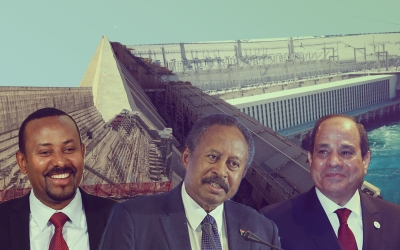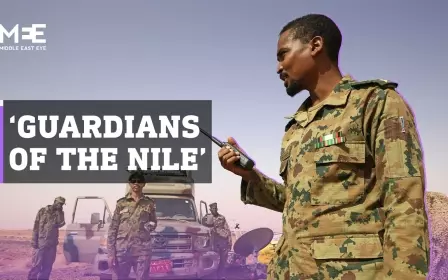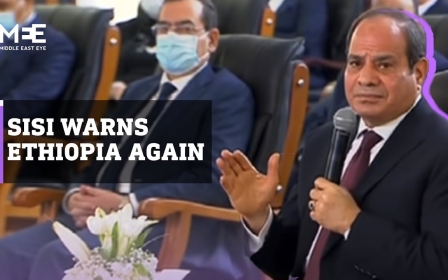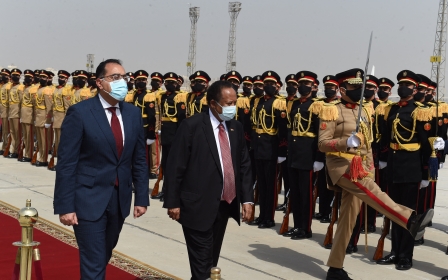Egypt: Ex-diplomat detained after criticising government handling of Ethiopia dam crisis
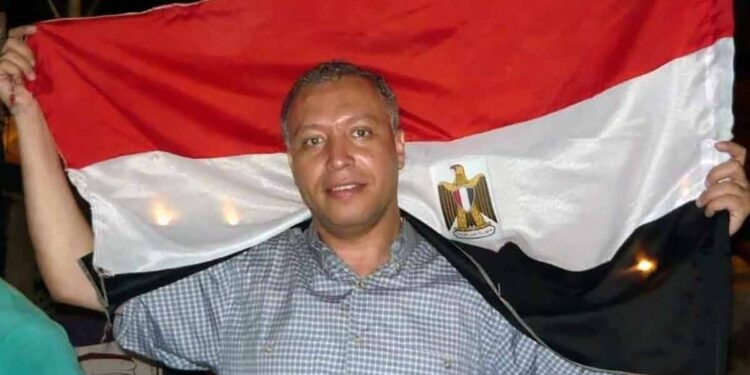
Egyptian authorities have arrested a former Egyptian diplomat and government critic, Yehia Negm, after raiding his home in Cairo on 29 May, several rights groups said, citing his family.
According to an article published on Sunday by Czech-based organisation Egyptian Front for Human Rights (EFHR), Negm’s family said that he appeared at the Supreme State Security Prosecution on 2 June, after an enforced disappearance that lasted for three days.
Negm, the 52-year-old former second secretary at the Egyptian embassy in Caracas, Venezuela, has been charged with “joining a terrorist group, spreading false news, and misusing social media”. The prosecution ordered his pre-trial detention for 15 days pending an investigation into the case.
His family said that as soon as the investigation zeroed in on Negm, he was transferred again to an unknown location. They have demanded authorities reveal his whereabouts and allow them to deliver medication to him "as his health condition is critical and needs continuous follow-up."
The EFHR said that after Negm’s arrest, he was transferred to the National Security headquarters in Al-Salam area, where he was interrogated about his Facebook posts.
Negm, a former supporter of the Sisi government, has recently emerged as a critical voice against a number of agricultural policies, particularly the potential impacts of the controversial Grand Ethiopian Renaissance Dam on the country's water needs. He has accused the Sisi government of “mismanagement” of the dam crisis.
In a post on 23 May, he said that “the conflicting statements of Egyptian officials [on the dam crisis] indicate a state of internal delirium and schizophrenia, and make the country the laughing stock of the world.”
Dam diplomacy
Ethiopia's construction of the Grand Ethiopian Renaissance Dam (GERD) on the Blue Nile has alarmed downstream countries Egypt and Sudan. Cairo fears the dam will imperil its supplies of Nile water, while Khartoum is concerned about its safety and waterflow through its own dams and water stations.
Egypt and Sudan insist that binding agreements are needed to secure their future interests and water security, and that these must be agreed prior to the filling process.
A Sudanese official last month said that Ethiopia had begun the second phase of filling the reservoir behind the giant dam in early May, a process expected to accelerate in July and August after seasonal rains.
Despite Addis Ababa’s denials, Mustafa Hussein al-Zubair, Sudan's chief negotiator to the Ethiopian dam talks, insisted to Middle East Eye that the second filling had begun, as evidenced by "technical developments".
Since the former army general Abdel Fattah al-Sisi became president in 2014, his government has overseen what Human Rights Watch has described as the worst crackdown on human rights in the country’s modern history.
Tens of thousands of his critics languish behind bars, many of them in pre-trial detention that is continuously renewed.
Middle East Eye propose une couverture et une analyse indépendantes et incomparables du Moyen-Orient, de l’Afrique du Nord et d’autres régions du monde. Pour en savoir plus sur la reprise de ce contenu et les frais qui s’appliquent, veuillez remplir ce formulaire [en anglais]. Pour en savoir plus sur MEE, cliquez ici [en anglais].


